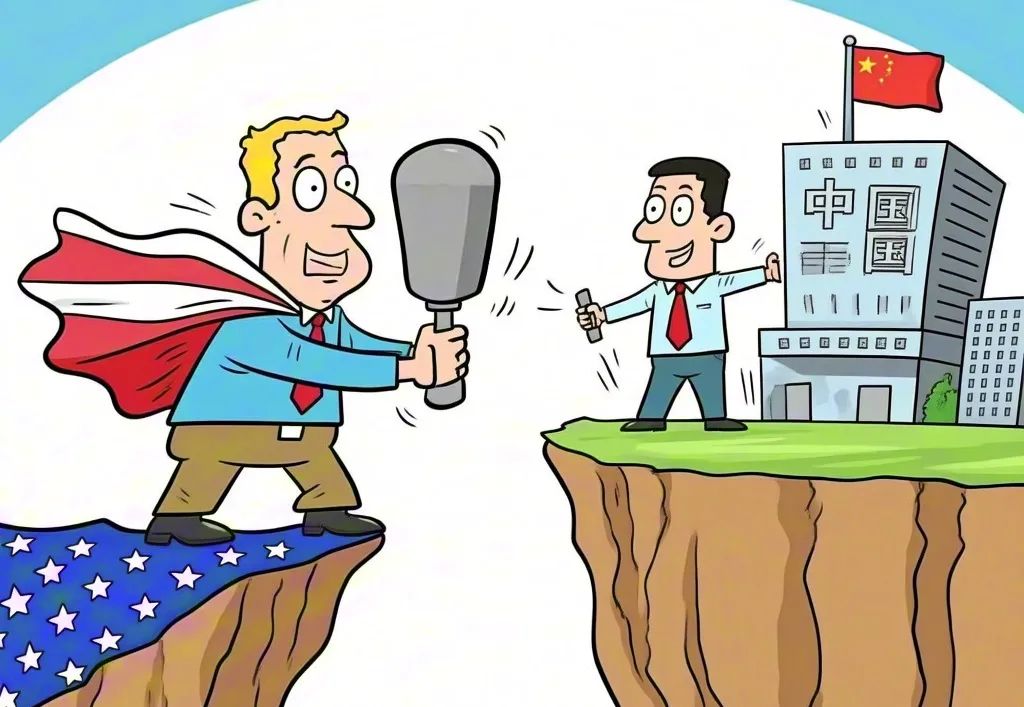The Swift Removal of Tencent WeChat from the 2024 US Notorious Markets List for Counterfeiting and Piracy: A Stark Contradiction
![]() 01/09 2025
01/09 2025
![]() 574
574
On January 8, the Office of the United States Trade Representative (USTR) unveiled its 2024 Notorious Markets List for Counterfeiting and Piracy, notably excluding Tencent WeChat for the first time.
The U.S. maintains that this list aims to expose online and physical markets allegedly facilitating large-scale piracy and trademark counterfeiting.
Tencent WeChat has consistently opposed this designation, emphasizing its substantial investments and global cooperation efforts in intellectual property to the USTR.
Considering the recent decision by the U.S. Department of Defense to include Tencent on the Restricted Procurement List, it becomes evident that there are diverging approaches among U.S. government departments towards Tencent. Unlike the CMC list issued by the Office of the Under Secretary of Defense for Acquisition and Sustainment, which restricts procurement transactions between listed companies and the DoD and its suppliers, the Notorious Markets List is issued by the U.S. President's Office and has a broader trade focus. Analysts perceive this as a positive signal for Tencent, indicating a lack of unified attitude and systematic action within the U.S. government.
Multiple U.S. Lists Targeting Chinese Tech Companies
In recent years, the U.S. government has formulated and implemented various list measures targeting Chinese companies to curb their development in both the U.S. and global markets. These lists include the Entity List for export control, aimed at restricting Chinese companies' access to U.S. high-tech products and technologies; the CMC List targeting companies deemed to have ties with the Chinese military; and the Notorious Markets List aimed at combating piracy and trademark counterfeiting. The release of these lists reflects the U.S. government's "panic" over the rise of Chinese tech companies, posing challenges to their normal market operations.

Many Chinese entities, including Huawei, have been added to the U.S. Entity List for export control, meaning they face difficulties in obtaining products, software, and technical support from U.S. companies from a supply chain perspective.
From the perspective of international market expansion, being included in these lists severely restricts these companies' development opportunities in the international market, particularly their access to the U.S. market. Furthermore, from the corporate innovation standpoint, this hinders their ability to integrate U.S. innovation resources, such as high-tech talent and advanced products, thereby weakening their capacity to obtain innovative elements from the U.S.
The full name of the U.S. CMC List is the "Chinese Military Companies" list, abbreviated as CMC List. Established by the U.S. Department of Defense under Section 1260H of the National Defense Authorization Act (NDAA) for Fiscal Year 2021, this list identifies Chinese military companies operating directly or indirectly in the U.S. and imposes sanctions on them. Specifically, it prohibits the U.S. Department of Defense from procuring products from these companies.
The CMC List, which includes companies like CATL and Tencent, is based on the original CCMC criteria, with the addition of the relevant determination of "military-civilian integration contributors" and a fallback clause for "any other entity deemed appropriate by the U.S. Secretary of Defense." Consequently, the scope of the CMC List has broadened compared to the CCMC. However, it's worth noting that the CMC List itself does not impose direct restrictions on companies. Companies also have the opportunity to seek removal from the list through legal proceedings.
One list that Chinese internet companies frequently find themselves on is the "Notorious Markets List," published by the USTR, an agency directly under the White House. Initially part of the Special 301 Report, since 2010, the list has been separated and published as an "Out-of-Cycle Review Report," closely related to intellectual property issues. Many Chinese internet companies have been included on this list. Notably, the USTR has proactively removed Tencent and Tencent WeChat from the list.
Patchwork Lists Highlight U.S. "Panic" Over China's Tech Rise
In recent years, the U.S. has frequently issued various lists targeting Chinese companies, and behind these patchwork lists lies a deep-seated "panic" over China's technological rise.
Particularly noteworthy is the Notorious Markets List published by the USTR, which, despite being labeled as an "Out-of-Cycle Review Report," closely monitors the intellectual property issues of Chinese companies, attempting to curb the innovation vitality of Chinese tech companies through this measure. However, facts have proven that the U.S.'s suppression has been ineffective, and Chinese companies like Tencent have not only successfully coped but have also continued to grow and thrive amidst adversity.
These so-called lists are mere manifestations of the U.S.'s "panic" over China's technological rise. Amidst the wave of globalization, the U.S. attempts to maintain its hegemony through unilateral means, but it will ultimately be defeated by the wheel of history.
The formulation of various U.S. lists appears chaotic and haphazard, like a random patchwork by an amateur troupe. The U.S. has never been able to provide timely and clear explanations for why relevant companies are included on these lists, which are replete with unfounded accusations and arbitrary actions, leading to many companies being wrongfully accused, while the public is often left confused, watching this farce from the sidelines.
The U.S. approach of arbitrarily designating various categories to suppress Chinese companies without asking for reasons runs counter to its consistently advocated principles of market competition and contractual spirit. Such behavior not only undermines the confidence of foreign companies in investing and operating in the U.S. but also harms the vital interests of U.S. local companies and investors.
It's worth noting that the introduction of these lists is often accompanied by changes in the domestic political situation in the U.S., especially around the transition of political power. The government may take a series of tough measures to divert domestic attention or win voter support out of consideration for party interests or personal political legacies.
Secondly, the formulation and implementation of these lists lack transparency and fairness, often rushing to conclusions based on limited information or one-sided evidence, and even influenced by political manipulation and bias. This not only damages the legitimate rights and interests of companies but also seriously affects the credibility and image of the U.S. government.
Finally, the actual effects of these lists are often limited, but they also undermine the stability of the international economic and trade order and the global industrial chain and supply chain. This short-sighted behavior is undoubtedly a political manipulation during the garbage time between U.S. presidential transitions, which is not conducive to the healthy development of the economies of China, the U.S., and the world.
Conclusion
The removal of Tencent WeChat from the U.S.'s 2024 Notorious Markets List for Counterfeiting and Piracy is undoubtedly a stark contradiction. This change reflects the U.S.'s overly sensitive response strategy in the face of the rise of Chinese tech companies, exposing its anxiety and unease over the rapid growth of China's technological strength.
However, the wheel of history always rolls forward, and any attempt to swim against the tide will eventually be overwhelmed by the torrent of the times. With the spirit of self-improvement and the courage to innovate, Chinese tech companies are constantly breaking through and going global. This tenacious power will not only bring prosperity to China but also benefit the world.





